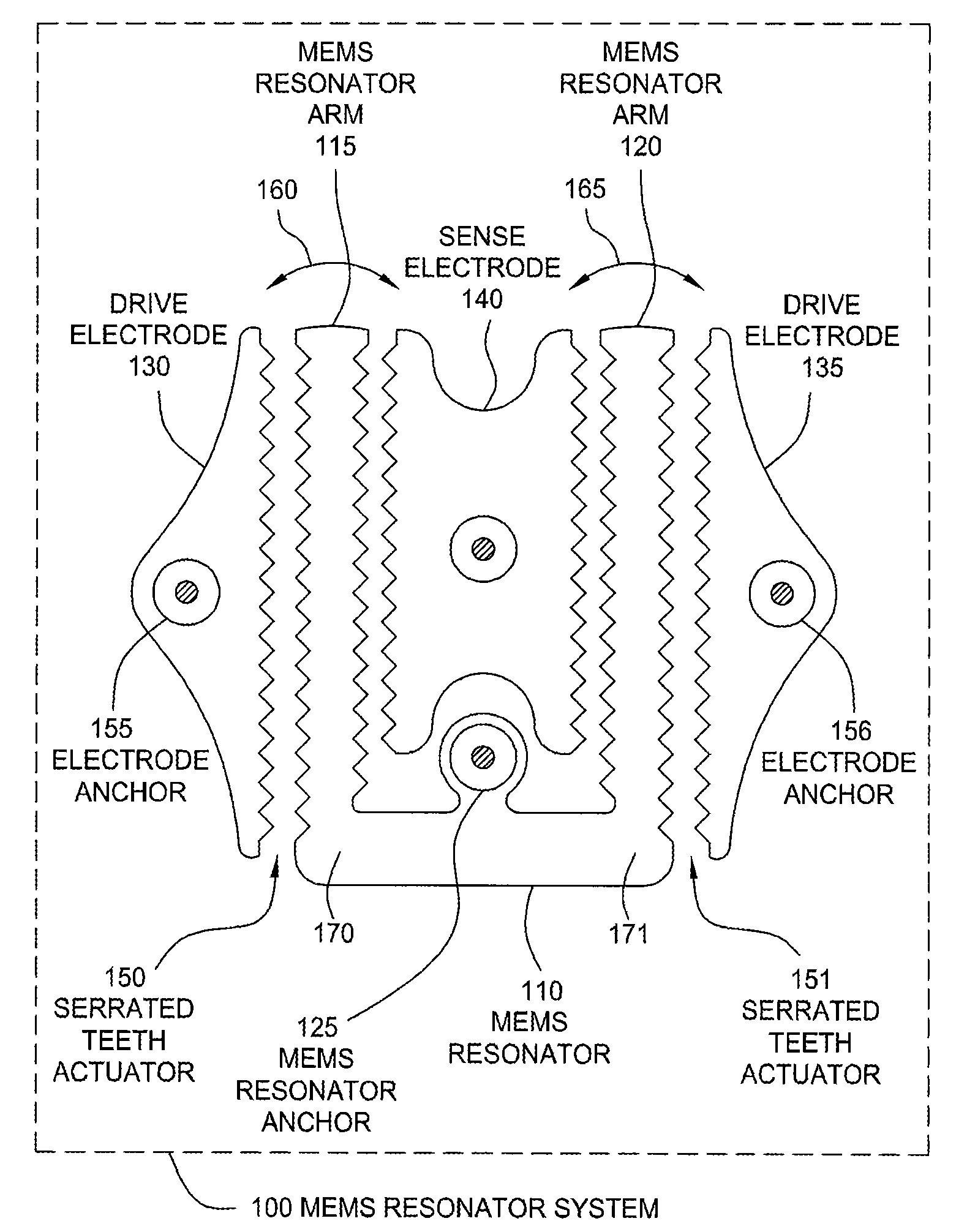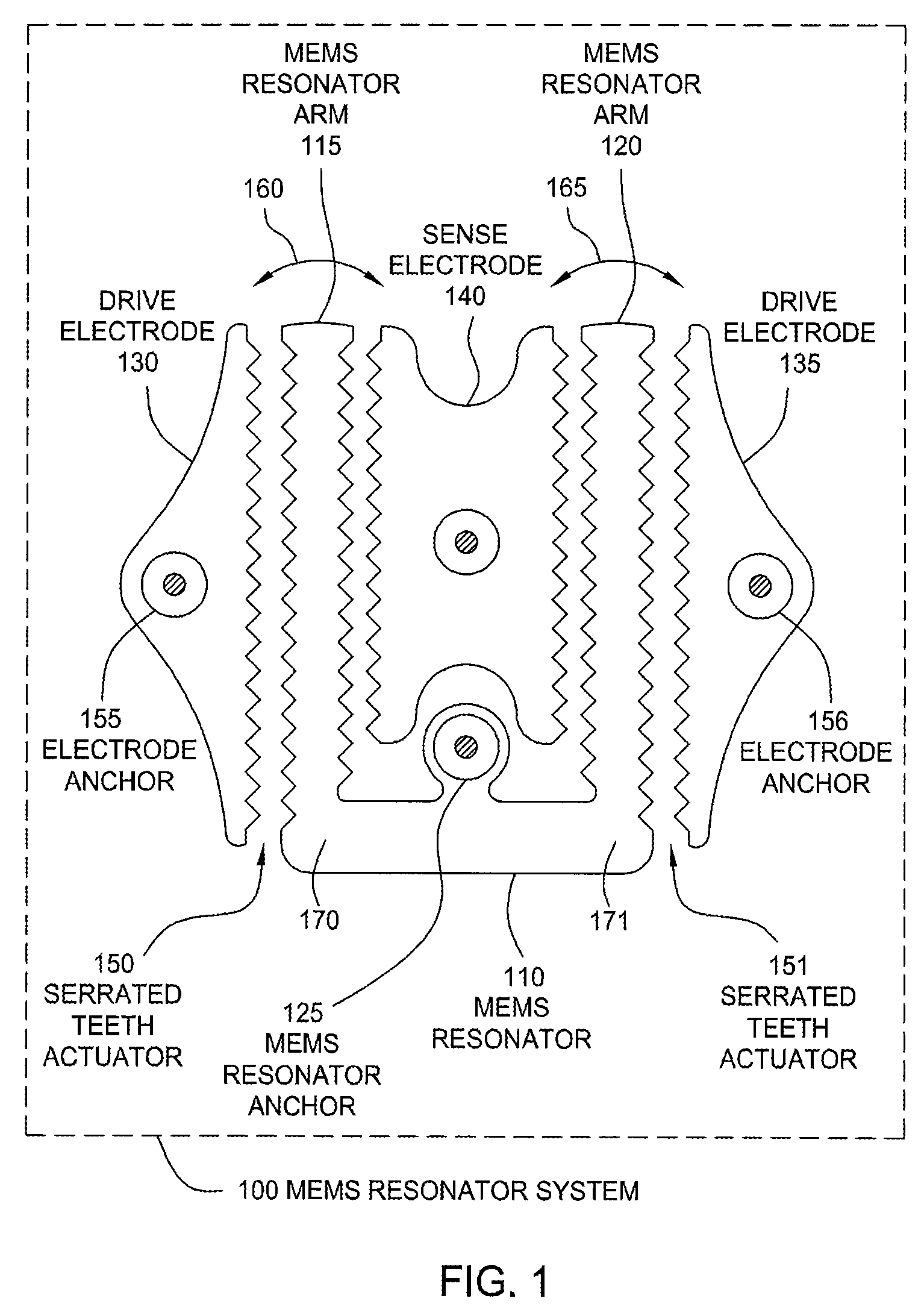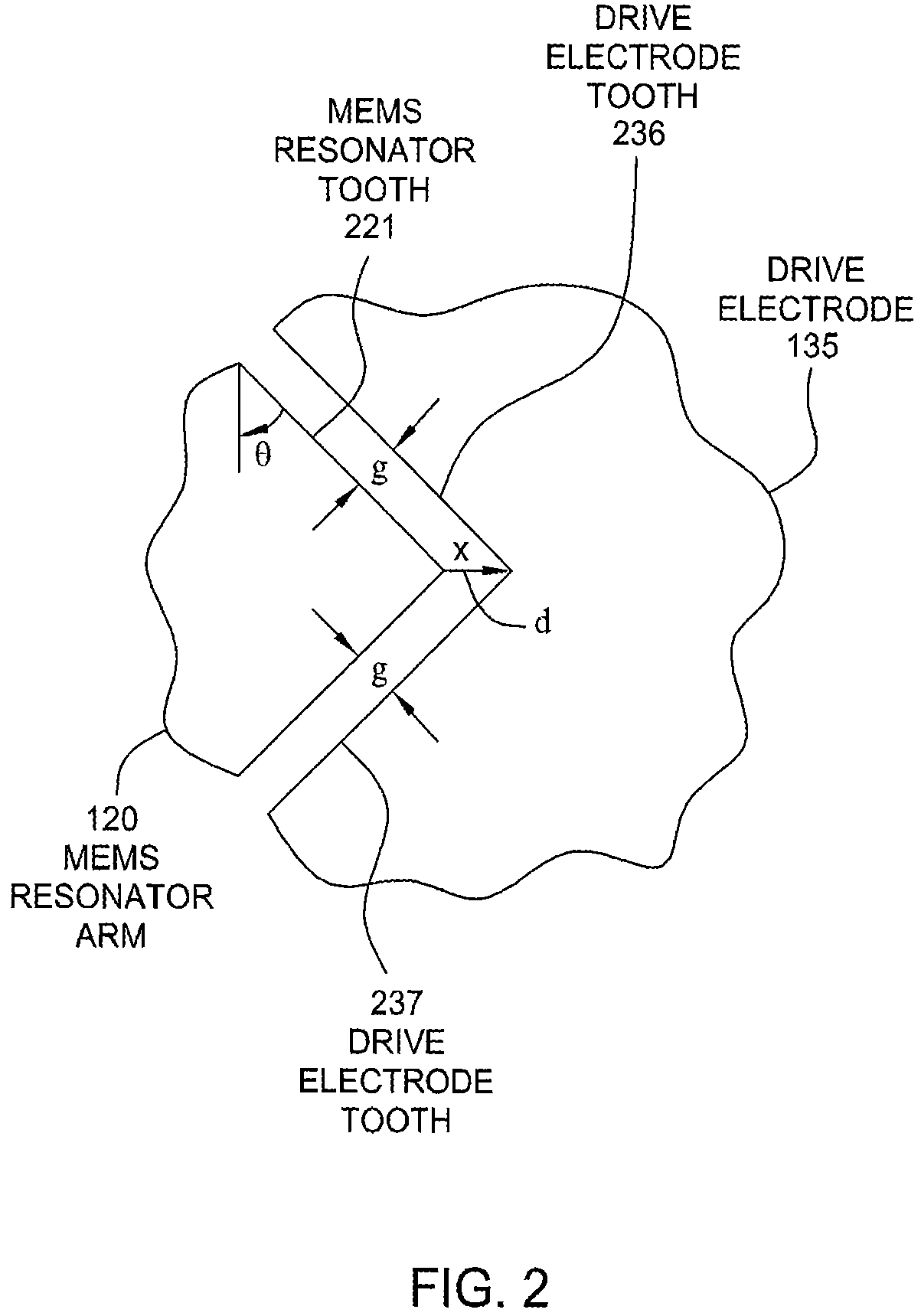Serrated MEMS resonators
a mems resonator and resonator technology, applied in piezoelectric/electrostrictive/magnetostrictive devices, oscillator generators, electrostatic motors, etc., can solve the problem of upper limit of the useful range of drive voltage amplitudes, undesirable shift in the resonant frequency of the system, and the configuration of the actuator is not suitable for use. problem, to achieve the effect of reducing the amplitude, compromising the performance of the system problem
- Summary
- Abstract
- Description
- Claims
- Application Information
AI Technical Summary
Benefits of technology
Problems solved by technology
Method used
Image
Examples
Embodiment Construction
[0017]FIG. 1 is a conceptual diagram of a MEMS resonator system 100, according to one embodiment of the present invention. As shown, the MEMS resonator system 100 includes, without limitation, a MEMS resonator 110, drive electrodes 130 and 135, and a sense electrode 140. The MEMS resonator 110 includes MEMS resonator arms 115 and 120 that are mechanically coupled. As previously described herein, by applying a time-varying signal to drive electrodes 130 and 135 at a given frequency and, optionally, a DC voltage between the MEMS resonator 110 and drive electrodes 130 and 135, electrostatic forces are generated that cause the MEMS resonator arms 115 and 120 to oscillate in a tuning fork fashion, as indicated by arrows 160 and 165, respectively. In response to the motion of the MEMS resonator arms 115 and 120, the average capacitance between the sense electrode 140 and the MEMS resonator arms 115 and 120 changes at a substantially constant frequency. Thus, the capacitance can be measure...
PUM
 Login to View More
Login to View More Abstract
Description
Claims
Application Information
 Login to View More
Login to View More - R&D
- Intellectual Property
- Life Sciences
- Materials
- Tech Scout
- Unparalleled Data Quality
- Higher Quality Content
- 60% Fewer Hallucinations
Browse by: Latest US Patents, China's latest patents, Technical Efficacy Thesaurus, Application Domain, Technology Topic, Popular Technical Reports.
© 2025 PatSnap. All rights reserved.Legal|Privacy policy|Modern Slavery Act Transparency Statement|Sitemap|About US| Contact US: help@patsnap.com



